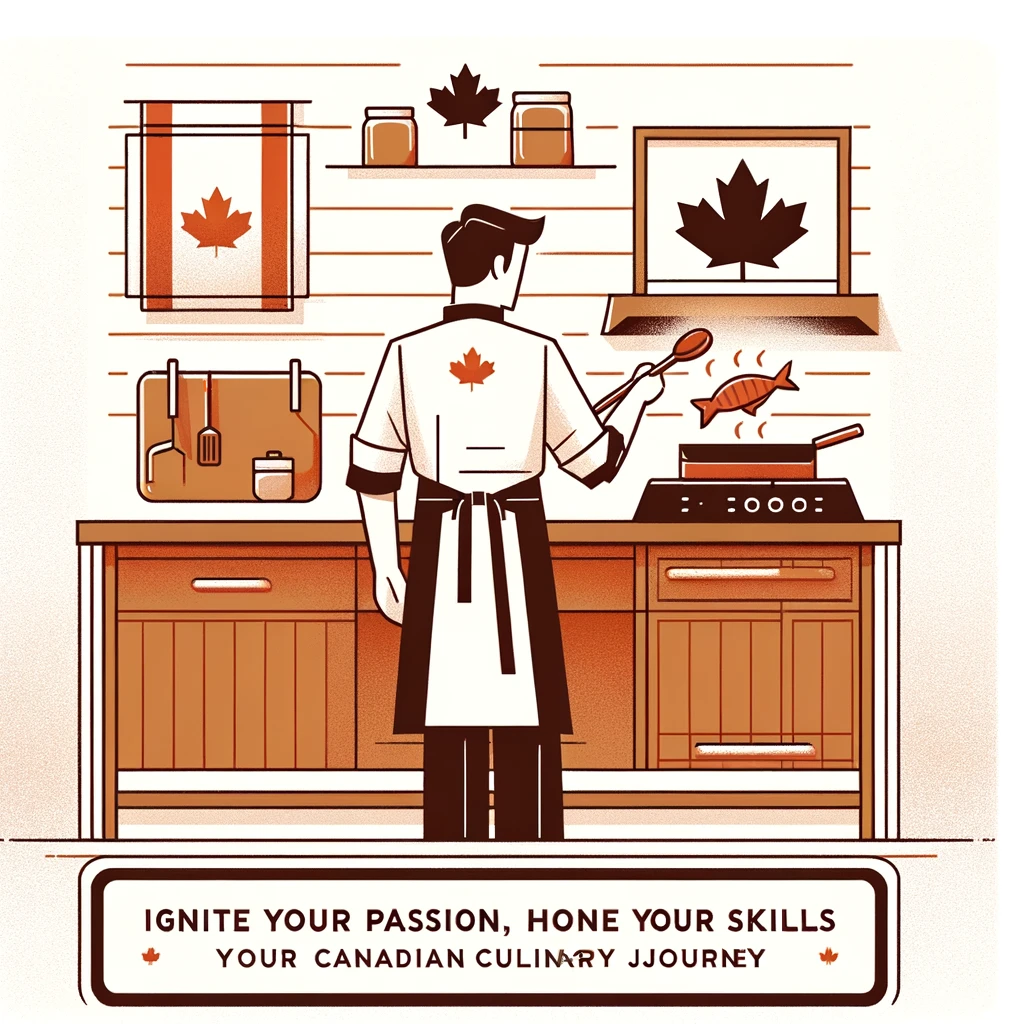Ignite Your Passion, Hone Your Skills: Your Canadian Culinary Journey
Discover the steps to turn your culinary passion into a fulfilling career in Canada.
Introduction
Do the sizzling sounds of a busy kitchen and the aroma of delectable dishes awaken your soul? Becoming a chef in Canada can transform your culinary dreams into a rewarding career. However, this journey requires dedication, skill, and the right roadmap. This guide will navigate you through the essential steps, from hands-on experience to finding your culinary niche.
1. Test the Kitchen Waters
Before diving into formal training, gain firsthand experience in the fast-paced kitchen environment. Start with entry-level roles such as:
- Dishwashing – Learn the foundation of kitchen operations.
- Serving – Understand customer interactions and restaurant flow.
- Food Running – Observe how meals come together under pressure.
These roles help you assess whether the culinary industry aligns with your aspirations.
2. Education: Your Culinary Compass
While formal culinary education is not mandatory, it offers valuable skills and industry connections. Consider these options:
Culinary Schools in Canada
- George Brown College (Toronto)
- Le Cordon Bleu (Ottawa)
- Pacific Institute of Culinary Arts (Vancouver)
- Niagara College School of Hospitality (Ontario)
- Institut de tourisme et d’hôtellerie du Québec (ITHQ)
Alternative Learning Paths
- Community Colleges – Affordable programs with transferable credits.
- Apprenticeships – Paid, hands-on training with experienced chefs.
- University Programs – Degrees in food science, nutrition, or hospitality management.
3. Hone Your Skills: Practice Makes Perfect
Regardless of your educational path, hands-on experience is essential. Enhance your culinary expertise by:
- Seeking internships during studies.
- Gaining part-time kitchen roles.
- Pursuing full-time jobs after graduation.
Continued practice refines technique and builds confidence in the kitchen.
4. Certification: Elevate Your Culinary Expertise
Although not required, certifications from the Canadian Culinary Federation (CCF) can boost your credibility. Consider:
- Certified Working Chef (CWC)
- Certified Chef de Cuisine (CCC)
These credentials demonstrate expertise and commitment to culinary excellence.
5. Find Your Culinary Niche
The Canadian culinary landscape is diverse, offering many career paths. Explore specialties like:
- Regional Canadian cuisine
- Indigenous gastronomy
- International flavors
- Catering and event planning
- Restaurant ownership
Understanding your passion helps you carve out a unique culinary identity.
Ready to Embark on Your Culinary Adventure?
This guide provides a roadmap, but your journey is yours to shape. Embrace challenges, continuously learn, and stay persistent. With dedication and passion, you can turn your culinary dreams into reality in Canada’s thriving food industry.
Additional Tips
- Network with Canadian chefs and restaurateurs.
- Explore unique ingredients and regional cuisines.
- Understand Canadian food safety regulations and licensing.
Start your culinary journey today and unleash your full potential as a chef in Canada!

